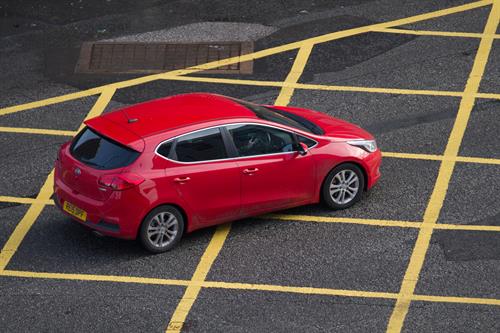Thousands of motorists could be forced into paying fines for traffic offences they didn’t commit thanks to a clause being enforced by Transport for London (TfL) for cross-hatch yellow box offences.
TfL is using a loophole created by the 2003 decriminalisation of the Transport for London Road Network to chase owners of vehicles, rather than their drivers, for payment of fines relating to traffic contraventions on the capital’s Red Routes.
Under the London Local Authorities and Transport for London Act 2003, TfL was granted powers to pursue the registered keepers of vehicles causing obstructions on over 300 miles of the capital’s roads, principally to issue charges for parking infringements, which are a civil rather than criminal offence.
Since the decriminalisation of the Transport for London Road Network to include box junctions and bus lanes, the Metropolitan Police Service has been enforcing traffic regulations under a special service agreement with TfL using traffic wardens, manned and unmanned cameras and Police Community Support Officers to enforce regulations in yellow boxes, bus lanes and all red routes.
Because yellow box contraventions aren’t considered to be criminal offences, the standard legal process in the UK does not apply, meaning that the person pursued for the charge has no right to defend themselves in court, and if they don’t pay up could end up with a County Court Judgement or recovery action from bailiffs.
In 2016 alone, one yellow box camera in Fulham raised over £2.4 million from contraventions, while over £100 million in fines has been collected via the capital’s yellow box cameras since 2004 (source: BBC Inside Out).
HonestJohn.co.uk contributor Craig Cheetham received a Penalty Charge Notice for a yellow box infringement on Euston Road in the Borough of Westminster, but despite the fact he wasn’t driving the car and could prove he was in a different part of the UK at the time of the offence, TfL is continuing with proceedings to recover the charges, which have risen from £65 to £195 after his appeal was rejected.
“My car was on loan to a friend whose own is currently off the road,†said Craig. “He was visiting London for work and pulled into a box junction to allow an ambulance across the junction.
“Not only are TfL adamant that, while an ambulance clearly drove through the box junction by its own admission, a traffic obstruction occurred, and as it was my car that ventured into the yellow box, it’s me that has to pay the fine – even though I was in Wales at the time of the alleged transgression. How can this be deemed a legal recovery process when, unlike a speed camera fine, there’s no option to nominate the driver of the car? And furthermore, how can moving out of the way for an ambulance be considered an offence?â€
But thanks to the London-only ruling, which makes blocking a yellow box a civil rather than criminal offence, TfL says it’s the owner of the car that is responsible for the obstruction as it is their property that is causing the blockage, not the driver, regardless of where they were at the time of the offence.
In its reply to Craig’s appeal, TfL said: “We have noted that you were not the driver of the vehicle on the date and at the time the contravention was observed. However, under the London Local Authorities Act 1990 to 2003, it is the registered keeper of the vehicle who is liable for any charges incurred by the vehicle. As the DVLA has confirmed you were the registered keeper of the car at the time of the contravention we are satisfied that you are the person liable for payment of this penalty charge notice.â€
Honest John Managing Editor, Daniel Powell, said: “Whilst nobody would argue against why yellow boxes exist, using them as an excuse to extract cash from innocent motorists isn’t what the Transport for London Act was created for.â€
Craig has since sent his appeal to ‘London Tribunals’ based in Nottingham for adjudication, while the original PCN was issued from a central office in Darlington, Co. Durham – both companies employed by TfL to carry out administrative duties despite not being based in the capital. However, if the adjudication fails, as expected, he will have 28 days to pay the fine or face action from bailiffs, who would be given the right to remove property to the value of the fine plus any fees from his home, despite the fact he has proof he wasn’t driving the car.
TfL were approached for comment on more than one occasion while this story was being prepared but have yet to respond.








